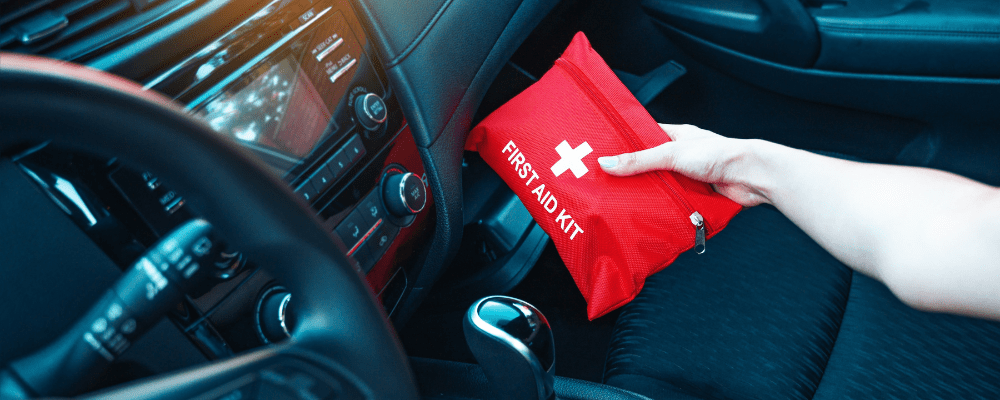
Everybody loves a road trip, but here in Australia that can often mean you will be passing through or staying somewhere quite remote. Whether you’re travelling near or far, it is crucial to be prepared for any situation.
Here are our tips for first aid on the road:
What do I need to include in my vehicle first aid kit?
At the very least, your vehicle first aid kit should include all the essential first aid items, including:
- Bandages
- Adhesive tape
- Gauze pads
- Antiseptic or antibiotic wipes and creams
- Safety pins
- Plasters
- Cotton balls or cotton swaps
- Tweezers
- Protective medical-grade gloves
Choosing the right kit
VEHICLE MAX KIT
The Vehicle Max first aid kit is designed for vehicles, suitable for both work and recreational purposes. It meets current Work Health and Safety (WHS) regulations for 1-10 persons in a work vehicle, ensuring compliance and peace of mind. The kit includes all the basics and essential extras such as splinter probes, burn gel, saline eye wash, and instant ice packs, covering a wide range of common injuries encountered in vehicle environments.

REMOTE VEHICLE KIT
The Remote Vehicle first aid kit is tailored for compliance with work vehicle standards in remote locations. It surpasses current WHS regulations for vehicles carrying 1-10 people, ensuring readiness for emergencies. The kit includes all basics and essential extras like splinter probes, burn gel, and eye wash, as well as snake and spider bite treatments.

4WD & OUTBACK KIT
The 4WD & Outback first aid kit is designed for recreational 4WD use and serves as a reliable first aid kit for low and high-risk worksites. It meets WHS requirements for Australian workplaces with 1-25 persons. This kit includes specialized modules for specific injuries such as eye injuries, snake bites, and spider bites, making it versatile for outdoor activities. Additionally, a reflective strip on the exterior of the case helps locate the kit in low light conditions.

First aid training
As fun as it can be, remote travel can often mean that you will have less access to help if something goes wrong. It is crucial to have basic first aid skills in case of an emergency.
People die every day from sudden cardiac arrest, because family members, friends, and bystanders don't know how to respond effectively.
It is recommended that CPR skills are updated every 12 months, and first aid skills every three years.
Explore our range of CPR and first aid courses at the link below.
